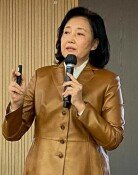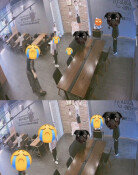President Moon should delegate power to prevent imperial presidency
President Moon should delegate power to prevent imperial presidency
Posted May. 11, 2017 07:32,
Updated May. 11, 2017 07:34
President Moon Jae-in on Wednesday nominated Lee Nak-yon, the incumbent governor of South Jeolla Province, as the new prime minister, and former lawmaker Im Jong-seok as his first chief of staff. The nomination of Lee suggests Moon's intention to consider the Jeolla region as the partner for his government. However, what is more important that the new prime minister's regional background is the president's determination to keep his campaign promise of delegating much of his power to the prime minister.
The Constitution provides that the president shall appoint ministers at the prime minister's recommendation. In reality, however, past presidents selected ministers and asked their prime ministers to recommend the nominees. Most previous presidents promised to give greater responsibility and power to their prime ministers. However, prime ministers' recommendation of ministers has long been a matter of formalities. However, a consensus was formed during the process of former President Park Geun-hye's impeachment that the prime minister should have greater power and responsibility in order to prevent an imperial presidency. During his inauguration ceremony at the National Assembly on Wednesday, President Moon promised to "share the president's imperial power as much as possible." The first step to do so is to delegate power to the prime minister.
The will of the prime minister designate is as important as that of the president. The "responsible prime minister" system failed to be firmly established because most previous prime ministers voluntarily gave up their own power except a few, such as Lee Hoi-chang and Lee Hae-chan. Prime Minister-designate Lee Nak-yeon said it would be "irresponsible" for a prime minister to have a say in every state affair. Lee will not likely be able to exercise his full right to recommend ministers because waiting until his formal appointment and selection of minister could delay the formation of a new government. However, he will not become a "responsible prime minister" if he fails to voice his own opinion when the president is criticized for making inappropriate personnel appointments or policies.
The post of the presidential chief of staff is such an important job that it is considered the No. 2 position in an administration. President Moon named a relatively young, 51-year-old former lawmaker for the post, which had been taken by political heavyweights in previous administrations. Although Im said he would not be a "yes man," it is questionable whether he will be able to say no to the much older president.
The conservative opposition Liberty Korea Party expressed concern over the fact that Im was the leader of a university students' pro-democracy activist group that send Lim Soo-kyung to North Korea in the 1980s. Considering that former activists exercised great power in the Roh Moo-hyun administration, there are concerns that the same will be repeated in this administration. There is only one way to address concerns that the presidential staff could become a power organization above the executive branch. It is for the president to let the prime minister and ministers exercise their due rights and authority. If the prime minister and the Cabinet play the role of simply implementing instructions coming from the president via the Office of the President, the imperial presidency will persist.
Reportedly, Cho Kuk, a professor at the Seoul National University Law School, has been designated as the senior presidential secretary for civil affairs, and Jo Hyun-ok, a visiting professor of political science at Ewha Womans University, as the senior secretary for personnel affairs. It is welcome news that a person with no background in the prosecution has been named the presidential secretary for civil affairs who would control the prosecution. However, it needs to be more carefully considered whether the professor who has long been an staunch support of Moon will properly watch the presidential family members and relatives and is capable of screening candidates for senior government posts not by their political leanings but by their competency.







